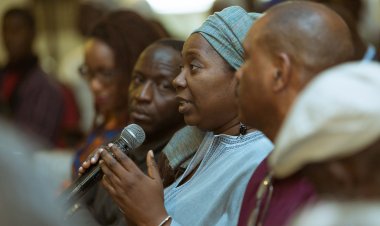The group currently known as the BRICS (collectively Brazil, Russia, India, China, and South Africa) marks its sixteenth year. It has come a long way since its first meeting in 2009 and has grown by leaps and bounds in importance, surpassing the G7 in GDP valuation in 2020. As the world order undergoes a geopolitical shift, the BRICS is at the heart of this change. Already, 2024’s summit promises to be like no other that has come before. Notably, it is the first to take place on Russian soil since the outbreak of that BRICS member’s war with Ukraine and will also see the debut of new members Egypt, Ethiopia, Iran, and the United Arab Emirates following their addition in January.
BRICS has expanded to include some of the world's largest fossil fuel producers as well as some of the world's largest producers of renewable energy. This could have significant implications for the international balance of power and the relationship between the EU and Africa. Additionally, Saudi Arabia has made substantial investments in large-scale solar projects in Egypt and South Africa. This raises questions about the potential role BRICS could play in the energy transition agenda of Africa.
The summit also takes place in the context of renewed and escalating tensions in the Middle East, with major implications for the global economy as well as stress tests for multilateral institutions, norms, and the bloc itself. And as half the world goes to the polls, three of the BRICS members are also voting for their governments, potentially leading to a seismic leadership change in this close-knit group in which previous experience has shown that lack of ideological buy-in can be detrimental.
In light of this, APRI – Africa Policy Research Institute (APRI), in partnership with the University of Johannesburg Department of Politics and International Relations, invites submissions of thoughtful analyses ahead of the summit on these and other related areas:
- Review of BRICS declarations and implementation
- BRICS, Africa and the EU
- BRICS+ and expansion
- Intra-BRICS member relations
- BRICS, democracy and elections
- BRICS approaches to global conflicts and key issues in international relations
- BRICS, the digital economy, artificial intelligence and the fourth industrial revolution
- BRICS, energy and the just transition
- BRICS, global finance, trade and economic development
- BRICS, international law, and norms
Contributors are encouraged to submit a full article of 1500 to 3500 words, or a 250-word abstract by 31 May 2024. Contributors who submit abstracts will have a month from the Notification of Acceptance date to submit the first draft of their paper.
Submissions should be made using this form.
Guidelines for submissions are as follows:
- Articles should be written in English, and not be under consideration elsewhere.
- Articles should be analytical and factual, with hyperlinks (instead of references) for evidence-based assertions.
- Articles should end with a brief bio pointing to the writer’s affiliation or independence.
The articles will be published as an edited volume. A selection of the contributors will also be invited to a special webinar series to further unpack their articles and share their views in the lead-up to the summit and after.




